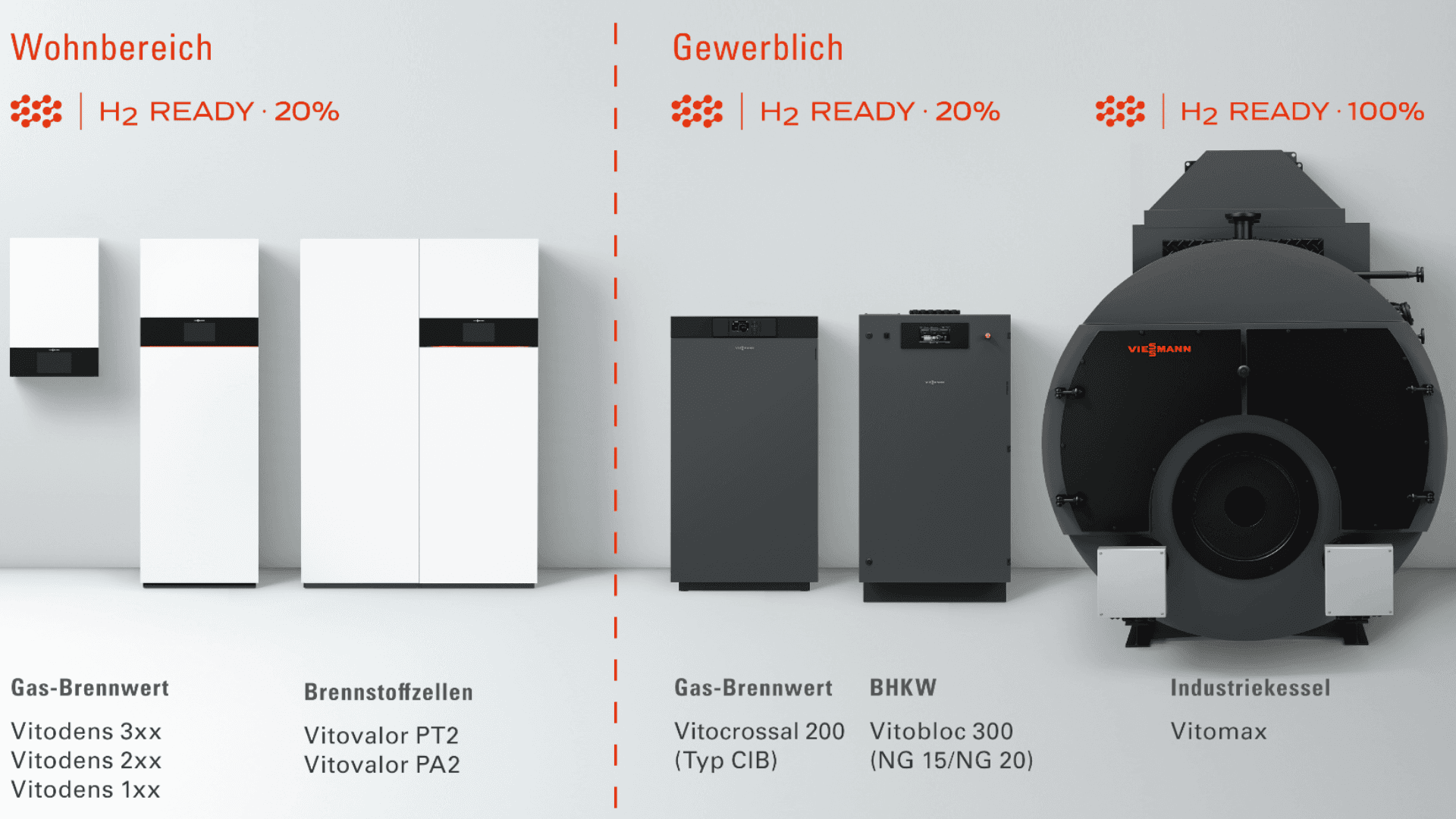Gas heating - heat at the touch of a button
Gas heating systems are among the most popular heating systems in both private households and the commercial sector. They offer a reliable heat source that combines both high efficiency and user-friendliness.

Discover the advantages of gas heating
A gas heating system offers many advantages, such as high efficiency, simple operation and environmentally friendly aspects. Our experienced installers will help you with both the selection and installation of a gas heating system.
1
High efficiency
2
Convenient operation
3
Rapid heat production
4
Space-saving solutions
Replacing an old gas heating system also makes perfect sense
Particularly in the case of higher gas consumption and in larger buildings, switching to modern condensing boiler technology can quickly achieve noticeable savings – often up to 30 % of the previous energy consumption.
Keep conversion costs low
The highlight: compared to alternative heating systems, the pipes, radiators and flue gas routing generally remain in place. This reduces the conversion work to a minimum, avoids costly interventions in the building fabric and considerably shortens the modernization time.
No major construction site in your home
While heat pumps or biomass systems often require large buffer storage tanks, additional electrical installations or even a complete replacement of the radiator network, with gas heating we simply replace the outdated appliance with a compact, highly efficient condensing boiler – including flue gas adjustment and hydraulic balancing. This allows you to benefit from lower operating costs and modern, future-proof heating comfort without turning your building into a major construction site.
Secure future potential with H₂-ready technology
Modern condensing boilers get an efficiency of up to 109% out of every cubic meter of natural gas and thus noticeably reduce consumption – especially in buildings with high heating requirements. At the same time, many current models are already “H₂-ready” and can easily process up to 20 % hydrogen-mixed gas. This means you remain flexible for future network conversions without having to invest again later.
Frequently asked questions
We will be happy to answer all your questions in a friendly phone call or by e-mail.
Contact us nowWhat is the difference between natural gas and LPG?
Natural gas consists mainly of methane and is supplied directly to households via pipelines. Liquid gas (e.g. propane or butane) is stored in liquid form and can be an alternative in areas without a natural gas supply. Both fuels can be used in gas heating systems, but they differ in terms of storage and availability.
How does a gas heating system work?
A gas heating system works by igniting natural gas or liquid gas to generate heat. This heat is transferred to the heating system (radiators or underfloor heating) via heat transfer mechanisms (e.g. heat exchangers). The heat generated is distributed in the rooms, while the exhaust gases are discharged via a chimney or exhaust pipe.
How much space does a gas heating system need?
The space required for a gas heating system is generally small. Gas boilers are compact and can be installed in a boiler room, basement or even in a suitable outdoor area. The space required varies depending on the size and type of boiler and the requirements for the gas supply.
What do I need to consider when maintaining a gas heating system?
The maintenance of a gas heating system should be carried out at least once a year by a qualified specialist. This includes checking the burner, inspecting the gas pipes, cleaning the heat exchanger and checking the flue gas routing. Regular maintenance ensures efficient operation and reduces the risk of faults or dangers due to gas leaks.
Do I absolutely have to replace my gas heating?
Replacing the gas heating system is only worthwhile if there is a higher heat requirement or great savings potential because the old system has a significantly lower efficiency. Contact us for an individual assessment of your system.